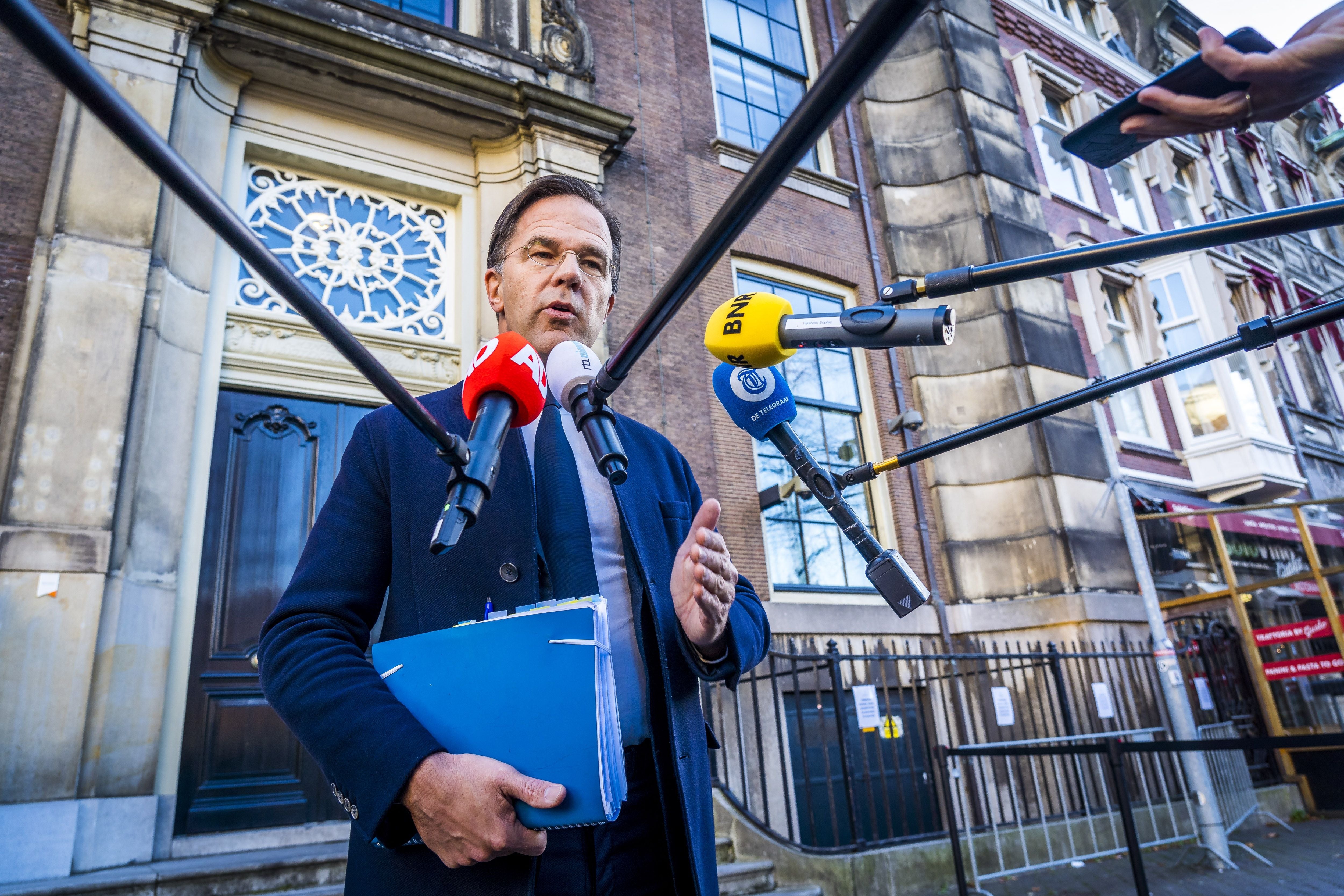Dutch PM lashes out at ‘idiots’ after third night of violence during Covid protests
More than 100 people were arrested amid violent protests over weekend

Mark Rutte, the Netherlands’ prime minister, has lashed out at “idiot” rioters who wreaked havoc across Dutch cities over the past weekend during protests against the government’s coronavirus restrictions.
“This was pure violence disguised as protest,” Mr Rutte told reporters on Monday, after more than 100 people were arrested for their role in the riots.
“There is a lot of unrest in society because we have been dealing with the misery of corona for so long. But I will never accept idiots using pure violence just because they are unhappy.”
On Friday evening, an anti-lockdown protest turned violent in Rotterdam. Demonstrators took to the city’s central shopping district to protest the government’s coronavirus restrictions, including a proposal to prevent unvaccinated people from accessing a number of public venues.
Photos and video footage from the protest showed a police car that had been set ablaze, and another that had a bicycle smashed through its windscreen. Police used a water cannon in an effort to disperse the riot, and even fired shots in hopes of clearing the crowd.
Four people were shot and others, including police officers, were injured in the violence. More than 50 people have been arrested in connection with the riot, including at least six minors. Authorities have also opened an investigation into the shots that were fired by police.
Ahmed Aboutaleb, the mayor of Rotterdam, described the unrest as “an orgy of violence”.
On Saturday, protesters took to the streets of Amsterdam and Breda to continue their demonstrations against the government’s Covid restrictions. While thousands took part in these protests, they were closely monitored by police and remained peaceful.
Yesterday, however, the demonstrations turned violent once again when black-clad groups pelted the police with stones in The Hague and lit fires throughout the city. In one instance, a rock was thrown through the windshield of an ambulance that was trying to take a patient to the hospital. Police reported that around 30 people were arrested.
A week ago, the Netherlands reimposed restrictions which required all bars, restaurants and essential shops to close at 8pm in an effort to curb the country’s rising Covid cases.
Despite these efforts, daily cases continue to surge and on Monday, Dutch health authorities reported more than 23,000 new infections over the past 24 hours – the second highest figure reported since the start of the pandemic.
As a result of the climbing cases and need to care for those critically ill with the virus, Dutch hospitals have been forced to scale back their regular treatment.
The Dutch Association of Healthcare Workers (V&VN) has warned that the country is headed towards a worst-case scenario in which hospitals will not have sufficient intensive care capacity for all the patients who require a bed. Official figures from last month showed that around 70 per cent of those in intensive care were unvaccinated or only partially vaccinated.
While health minister Hugo de Jonge has stressed that the Netherlands is “far removed” from this scenario, the government has not ruled out imposing more restrictions if cases and hospitalisations continue to rise.
Last week, the government proposed a plan that would restrict access to a number of venues for unvaccinated people.
Under current rules, people who are fully vaccinated, people who have recovered from Covid, and people who are unvaccinated but have recently tested negative for the virus are eligible to receive a “corona pass” which grants access to indoor public venues. The government’s proposal, however, would not allow unvaccinated people to receive a pass.
There is currently no timeline for such a plan to come into force, as it faced strong opposition in parliament and among the public.
Subscribe to Independent Premium to bookmark this article
Want to bookmark your favourite articles and stories to read or reference later? Start your Independent Premium subscription today.

Join our commenting forum
Join thought-provoking conversations, follow other Independent readers and see their replies